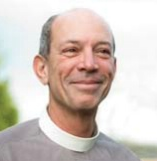What is Peace? Does it exist now? Will it ever?
What are the obstacles to getting everyone on the planet to believe that world
peace is possible? I don’t know about you, but, regardless of the current
state of peace in the world, I still choose to believe that peace is a
possibility.
What is Justice? Does it exist now? Will it
ever? What would it take for society to believe that every person deserves
justice and respect?
Again, I don’t know about you, but, regardless of the current state of justice in the world, I still dream of a time when every person will be treated with dignity and respect.
What is love? Imagine a world where love is
unconditional.
If you feel this way, please know that you are
not alone.
And this gives rise to the question of angels. Do
we believe in angels? Are they real? Who or what are they? Where do they come
from? Are they real? Can we see them? Are they human?
We have all heard about angles: Christmas
angles, guardian angels, heavenly angels, clarion angels, Angels for Allison (http://www.stmarksjacksonville.org/angelsforallison).
What I do know is that the word “angel” means
messenger, a being that is supposed to help us. Unfortunately, Christian
artists through the centuries misrepresented the idea of the messenger. They
painted angels using human forms, sometimes with wings and swords and dazzling
costumes. This led many to dismiss angels, in sort of the same way that we now
dismiss unicorns or even (dare I say it) griffins.
If this is what angels are not, then what might
they be? As we have already heard, the word “angel” simply means messenger. In
that sense, angels very definitely do exist. When Ghandi said, “Be the change that you wish to see
in the world,” he was saying, be an angel, be a messenger, be an agent of
goodness.
Angels sit by a sick child’s bed all night with
a message of love and security. They come and go from a dying grandparent’s
hospital bed with a message of comfort and appreciation. Just the other day a
teacher was running with his dog along a cornfield when he came across two
students, one of them injured and unable to run. They had come to a crossroads
and did not know where to turn so they took the path to the right, and that is
where they ran into the teacher. Did an angel point the way, or was that
teacher, perhaps, the messenger because he ran to back to school to get help
and took them back?
Tradition tells us that there are lots of
angels, and that they are almost always healthful. Of the many angels spoken of in the Bible, only
four are mentioned by name:
Michael, Gabriel, Raphael and Uriel. In Hebrew, Michael means "who is like
God." Michael is mentioned three times in the Book of Daniel, once as a
"great prince who stands up for the children of your people".
In the New Testament Michael leads God's armies
against Satan's forces in the Book of Revelation. During the summer before my
final year of college, I had to read the long poem Paradise Lost by the 17th century poet John Milton, an epic
concerning the Biblical story of the Fall of Man: the temptation of Adam and
Eve by the fallen angel Satan, the expulsion from the Garden of Eden, and the
angelic wars that ensued thereafter. It was the Star Wars of its day—before 20th
Century Fox or Disney/DreamWorks.
Finally, Michaelmas, the feast of Saint Michael
and All Angels, is the day I am writing about today. It is a day in the Western
Christian calendar which occurs at the end of September. Because it falls near
the equinox, it is associated in the northern hemisphere with the beginning of
autumn, the shortening of days, and the harvest of God’s abundant love.
